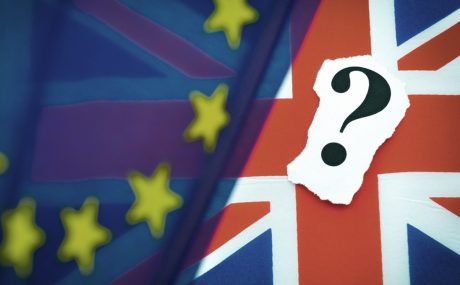Currently, walls and borders seem to feature heavily in global politics, with the urgent focus in Europe being on the customs border and how that will work. HMRC suggests that the proposed Max Fac technology based solution will cost business £20bn a year. Victor Cramer summarises the current position.
Newspapers report John Redwood’s view that this is excessive, but I see how the maths works and it stacks up to me. Assuming that is correct, the £350m (gross) Brexit bonus is immediately reduced by some £348m. Personally, I would go through quite a lot of bother for £2m a week, but the benefit has to be split 65m ways. So per person, the net result is a benefit of 3p a week.
And when you spend a while thinking about the customs border and how it might work, you suddenly realise you’re not alone. Over there, sitting quietly in the corner, waiting for someone to come and say hello, is a rather large elephant. It’s the VAT border. There was an interesting article about it in the FT recently, ‘VAT: Brexit’s hidden border dilemma’.
According to current reports, post Brexit, we will leave the Customs AND VAT union. The UK could, but almost certainly won’t, abolish VAT altogether. It raises too much money to be abolished.
We already know that import VAT will be charged up front on all imports from outside the UK after Brexit, that’s in the Taxation (Cross-border trade) Bill. There’s a nice new cashflow problem right there. You can probably mitigate that with a clever just in time supply chain, but a clever, just in time supply chain requires a really quite slick border.
And there’s the problem. Whoever said you can choose any two of quick, good or cheap (Shakespeare?) was right. We’ve got about a year to get it sorted, so we’re already committed to quick. That leaves us choosing between good or cheap. Cheap comes in two flavours. You could have one that is so light-touch as to be effectively optional, or you could have an invasive heavy handed system that would be pretty much non-functional. If we don’t like those, then we can still go for quick and good, but expensive. But how many large, expensive government IT and infrastructure projects have turned out to be good?
I see the Departments for Health, Brexit and Transport all clubbed together to prepare scenario reports for a no-deal Brexit, as reported in The Times over the weekend.
“In the second scenario, not even the worst, the port of Dover will collapse on day one. The supermarkets in Cornwall and Scotland will run out of food within a couple of days, and hospitals will run out of medicines within two weeks.”
What does all this mean?
It means change is coming. We just don’t know what change, or quite when. And there are likely to be teething problems. For at least a while, tax and customs issues aren’t just going to be compliance issues that you have to get right, they are potentially going to have real commercial consequences that ripple out beyond their focal point.
There are plenty of people out there offering to help prepare for the change. They have good insight, they can anticipate a lot of the issues and they can help identify the weak points. But being prepared is a bit like driving carefully. Sheer bad luck, or someone else’s lack of planning can turn things into a car crash pretty quickly without any fault on your part. What happens when goods get stuck in a warehouse somewhere? Or there is a VAT charge that was not expected? Or an unanticipated cash flow hit? Who will your supplier prioritise? How will your customer pay you? What can you do when someone else’s mistake means you can’t meet delivery or payment obligations?
Expect the best, but prepare for the worst
I don’t think the catastrophic scenarios will pan out, possibly despite the best efforts of government. At an individual and corporate level, people will prepare and are eminently adaptable.
I also think the current tone of discourse is interesting. The Treasury is making noises about potentially staying in the VAT union. The Cabinet is working on a sensible solution to the Customs Union issues. Moderate MPs are talking about calling the ERG’s bluff. The EU is already reforming free movement rules, and the CJEU changed its name only a few years ago. The seeds of reconstruction are ready to be sown.
So I propose a solution:
- Call the ERG’s bluff, they are a deeply worrying bunch and it is time their influence waned
- Maintain alignment on VAT and customs rules
- Accept EU changes to free movement rules (and lobby for a degree of domestic latitude)
- Call the ERG’s bluff again (they need to be told)
- Change the name of the CJEU back to the ECJ so we can agree we are no longer subject to the jurisdiction of the CJEU.
And then everyone’s happy.
Still, I deal in tax disputes, so it’s nice to feel needed. Does anyone know the German word for Schadenfreude?
You can find further information regarding our expertise, experience and team on our Tax Litigation pages.
If you require assistance from our team, please contact us or request a call back from one of our lawyers by submitting this form.
Media contact: Lydia Buckingham, Senior Marketing Executive, +44 (0) 20 7822 8134, lbuckingham@stewartslaw.com


